Creatine has become a well-known additive among athletes, weightlifters, and young men and women who thrive on fitness. The supplement’s primary purpose is to increase muscle mass and help in fast healing after sports or any other related activity has also been desired among teenagers.
However, is creatine safe for teens? That is the question that we all want to know the answer to.
Several scientific research has been conducted on creatine, and findings indicate that there are several benefits after the use of this product, including among teenagers. Creatine has been studied extensively, with research showing it’s safe and effective when taken at appropriate dosages.
Ninety percent of teenagers and parents crave answers to questions such as when I should start using creatine? How many times should I take creatine in a week? Are there common symptoms of this supplement?
This comprehensive guide will teach you everything you need to know about creatine safety in one place!
Related: How Much Belly Fat Is Normal for a Teenager?
What Is Creatine?
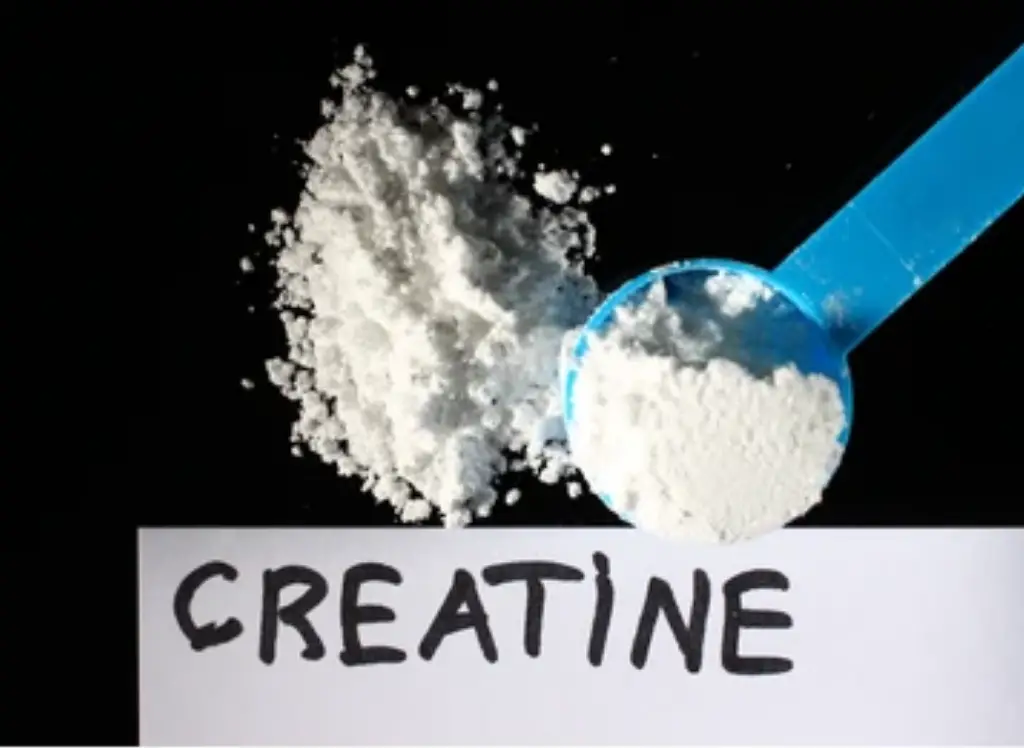
Creatine is naturally made by human organs, namely the pancreas, kidney, and liver, after being manufactured by three amino acids found in our body. It is usually located in the brain and muscle tissue.
Even though creatine is acquired through meat, milk, and seafood, physical fitness, especially among athletes and weightlifters, requires more to enhance their muscles. Therefore, they opt for supplements.
Creatine is a source of energy for teens out in the field for training purposes for sports such as football. Creatine is normally found in their muscles, thus boosting their resilience for more workouts.
How Does Creatine Work?
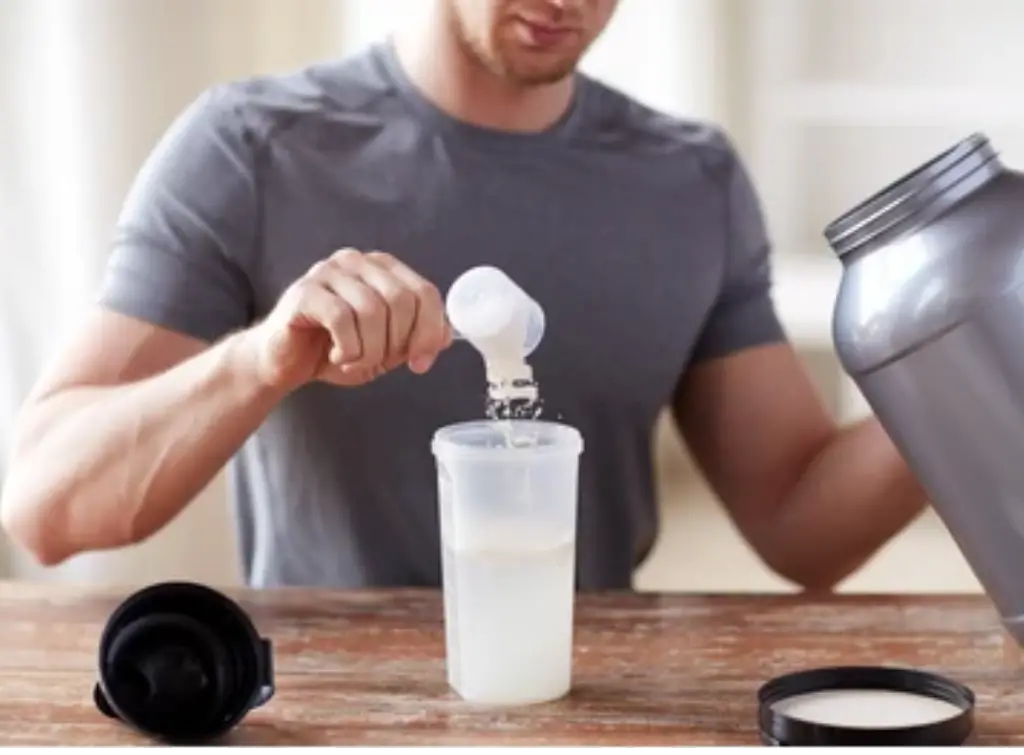
Creatine works by replenishing ATP, the energy molecule in your muscles that provide them with the energy they need to work. When you consume creatine, your body produces more ATP than usual. This boosts your energy levels and helps you exercise longer and harder. As a result, you burn more calories and boost your metabolism. Over time, this can result in weight loss.
In addition to boosting energy levels, creatine may also reduce fatigue and improve mental focus. It may also help lower blood pressure and triglyceride levels.
While there’s currently not enough evidence to suggest that creatine is an effective weight loss supplement, it may be worth trying for those who are interested in seeing if it could have beneficial effects on their weight.
The most common forms of creatine include creatine monohydrate and creatine ethyl esters (CEE). CEE has been found to be less effective than creatine monohydrate.
Other forms of creatine are available, such as Kre-Alkalyn, Creapure®, and micronized creatine monohydrate. This is a form that has been made smaller, which means it can be absorbed more properly into the body without being broken down first.
How Long Does It Take for Creatine to Work?
The time it takes for creatine to work depends on the dosage and method of administration. If you’re taking a loading protocol, as described in this article, then your body will become saturated with creatine within one week or less.
If you are supplementing with low doses of 3–5 grams per day, then it may take 3-4 weeks before you start to notice any effects from increased energy and stamina.
How Long Does Creatine Last in the Body?
Once you stop using creatine, about 46% of it will be eliminated from your body within 24 hours. After four weeks, the remaining 54% will be eliminated over a period of about three days.
The main benefit of increasing muscle mass through supplementation is that it can increase your energy levels and performance during exercise by helping to increase fat metabolism in skeletal muscle tissue, which causes greater thermogenesis (heat production).
How Long Should You Take Creatine?
Creatine is safe to use up to 30 grams of creatine per day for five years with no harmful side effects.
No studies have been conducted past a five-year window, so it’s important to note that there isn’t enough evidence in the scientific literature about whether creatine should be used for more than five years.
However, many athletes supplement with this substance on an ongoing basis because hundreds of studies demonstrate its benefits and safety profile.
Types of Creatine Supplements
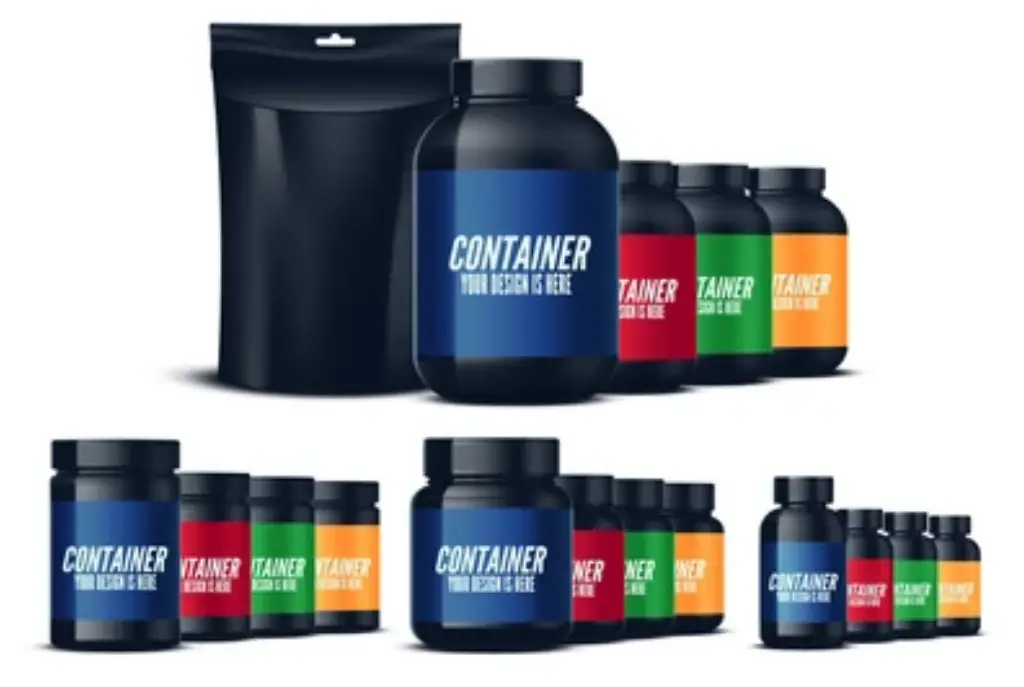
There are many different types of creatine supplements on the market. Some of the most popular ones include powdered creatine, creatine monohydrate, creatine citrate, and creatine tartrate. Each type is designed for a different purpose.
Each type of supplement has pros and cons, so it’s important to do your research before you make a purchase. You should also be wary of “creatine sketchy” products that have little-to-no research behind them or are claimed to be somehow better than other types of supplements.
Creatine Monohydrate
Creatine monohydrate is the most popular use of creatine among teenagers and even adults. Most findings elaborate this type of creatine is highly recommended. Creatine monohydrate can be manufactured differently but produces the same results.
First, the water molecule to process the creatine is detached, leaving the creatine anhydrous. Another way is the supplement being automatically processed to enhance the number of water molecules. These results improve the quantity of creatine in every dose consumed.
Nevertheless, absorbing the creatine becomes easier when the water is easily dissolved. In addition, creatine monohydrate boosts the advantages of muscle development among its users. It is also cheap and effective.
Creatine Ethyl Ester
Studies have indicated that the consumption of creatine ethyl ester is not as good as creatine monohydrate in boosting muscle capacity. This type of creatine is not recommended for use.
Creatine Hydrochloride
Creatine hydrochloride creatine is popular due to its easy absorption in water compared to other types of creatine; this widespread speculation suggests that one needs a lesser dose, thus avoiding well-known side effects like cramping. However, creatine monohydrate is more effective since it has been largely studied and tested.
Buffered Creatine
Buffered creatine is an alkaline powder put in the stomach to enhance its solidity. It helps lessen the common side effects such as stomach upset and cramping. Creatine monohydrate and buffered creatine are less the same.
Liquid Creatine
Liquid creatine is unique compared to most creatine that is in powdered form. It exists in liquid form; therefore, you don’t have to add water to use it like the rest of powdered creatine. This saves a lot of time that you would probably use to prepare.
However, its effectiveness is low compared to the other creatine. For better results, powdered creatine is recommended.
Creatine Magnesium Chelate
Creatine magnesium chelate is magnesium attached to the molecule. Creatine magnesium chelate has the same effects as creatine monohydrate; thus, it is recommended for boosting physical performance.
In summary, powdered creatine is typically used by athletes looking to increase their strength or endurance, while taking creatine monohydrate is typically taken by individuals who want to build lean muscle mass.
Creatine citrate is a popular choice for those who want to gain weight and those with kidney problems because it’s easier on the kidneys than regular creatine monohydrate.
Those who prefer to take their supplements in the form of a liquid can choose from creatine hydrochloride, creatine malate, or even creatine phosphate.
Is Creatine Safe for Teens?
In the right dosage, creatine is a safe supplement used by young athletes since there have been no reports of major side effects and conditions after its use. It is a nutritional additive to boost performance and physical fitness.
The first step to finding out if creatine is safe for you or not is identifying your goals. If your goal is to build muscle, then creatine likely won’t cause any harmful effects. However, if your goal isn’t building muscle or performance enhancement, then it’s best to consult with a doctor first before using the supplement.
Another thing you can do is research the side effects of creatine supplements. If you find any side effects listed on the supplement label, ensure they’re something you’re willing to deal with before taking the supplement.
For example, if the listed side effect says that creatine may decrease kidney function over time (which could be potentially dangerous), make sure you go talk to a doctor before continuing the use of the supplement.
Important Tips
- First, be sure to talk to your doctor before taking creatine supplements. He or she can help you figure out the best dosage for your individual needs.
- Second, always ensure not to take creatine and other medications or supplements that could interact with it.
- And lastly, remember that creatine doesn’t build muscle overnight—it takes time! So don’t expect to see results right away. Take things slow and steady; after a few weeks of consistent training, you should start seeing results.
The Benefit of Creatine Among Teens
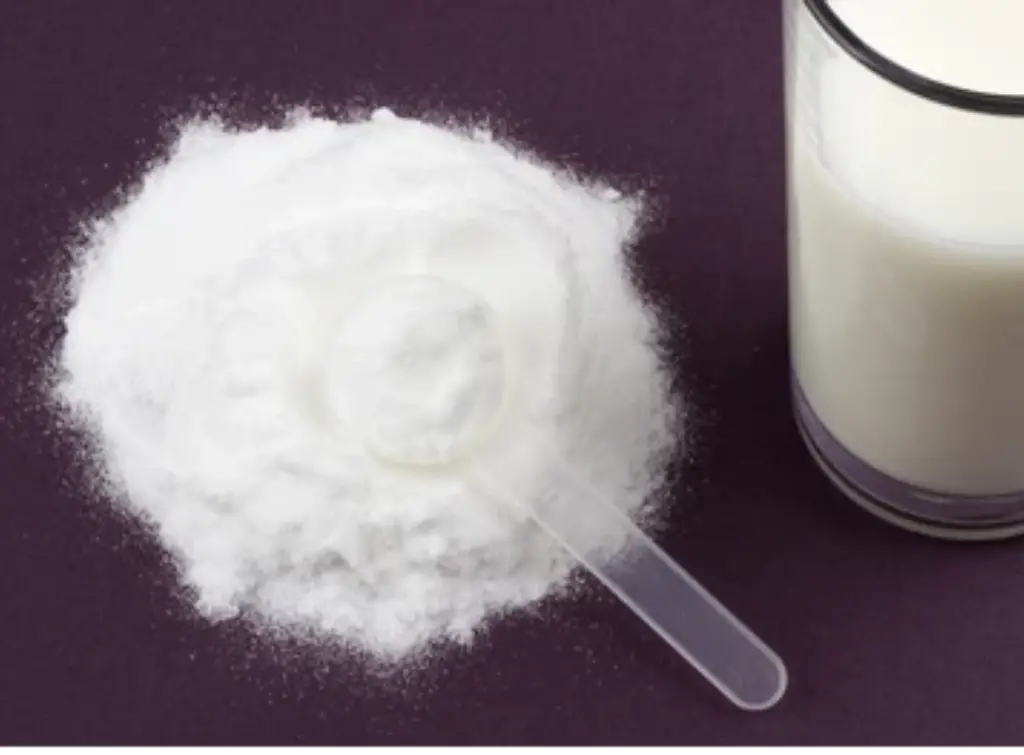
So, many years of research by different scientists have established that creatine is a dietary supplement that positively impacts athletes and teens performing in sports.
Well, as long as you stick to the recommended dosage and don’t take any other drugs or supplements with it, yes—it’s completely safe.
Below are several benefits.
1. Creatine Can Enhance Muscle Build in Teenagers
Most teenagers are usually in their adolescent stage. Therefore, taking creatine helps boost their muscle mass and eventually accomplish their goals of having a good body for performance.
A finding concluded that when used daily, nutritional supplements such as creatine can enhance muscle weight as long as one engages in frequent exercises.
2. Creatine Can Help Boost Performance and Strength in Teens
Teenagers who participate in sports use this supplement to help them gain the stamina they need, including strength and performance. Sports companies support creatine to help their players gain better performance and power strength to shine in the fields. Teenagers can use creatine because it is effective for their performance as athletes.
3. Creatine Can Encourage Fast Post-Workout Recovery in Teens
Common injuries among teen athletes include soreness and muscle strain, among others. These injuries are usually obtained after an intense workout of playing out on the field during normal performance.
The good news is that creatine comes in to quicken the recovery process after such exercises. Sometimes the muscles get damaged; creatine is then absorbed to reduce the soreness and injury of the muscles.
4. Creatine Can Help Treat Certain Paediatric Illnesses
Creatine qualifies as a medication for certain illnesses, including traumatic brain injury (TBI), gyrate atrophy, muscular disorders, and other related ailments. This was discovered way before it became popular amongst athletes.
A particular study confirmed that creatine is an aid to children aged between 1 to 18 years in enhancing behavior and mental functioning.
5. Improves Brain function
The brain is one of the most important organs of the human body. Creatine supplements enhance brain functioning in terms of memory and logical reasoning.
Prevalence of Creatine Use Among Teens
Supplements are popular among adolescents and college students for various reasons, including improving body composition, increasing immunity, and improving athletic performance.
Creatine supplements are available over the counter and can be purchased from health food stores or online.
Creatine is a dietary supplement available in various forms, including powders, pills, and liquid supplements. Because of its history of use by athletes, recommendations from sports groups, and availability without a prescription, this supplement has become a popular choice among teenagers.
According to one study, high school kids frequently use creatine because of referrals from friends and the drug’s ability to improve post-recovery.
Another study found that high school athletes as young as 14 years old were using creatine, with a reported frequency of daily use of 35 percent in one study.
While there may be some short-term benefits of creatine use among teens who participate in high-intensity exercise programs, long-term safety is unknown.
Additionally, creatine use among teens who consume other prescription medications or consume alcohol heavily should be avoided due to potential interactions with those substances.
Is Creatine Administered to Teens Safe?
The International Society for Sports Nutrition has long suggested creatine to athletes as a safe and useful supplement. On the other hand, the committee establishes guidelines for the use of creatine by younger athletes under the age of 18.
Since no studies have been conducted to determine if creatine is safe or effective in typical teen athletes, pediatricians are opposed to using such supplements.
The research continues to show that creatine use in adolescent athletes is well-tolerated, with no documented side events. It has also been shown to effectively treat some medical disorders in adolescents, despite the controversy surrounding it.
The use of creatine as a nutritional supplement is considered safe by professional sports organizations. High school students also extensively utilize it to improve their academic performance. Even though it is still controversial, research has shown that kids who use creatine are more tolerant.
The long-term effects of taking creatine are still unknown, so it’s best to talk with your doctor before starting this supplement if you’re thinking about doing so.
The Correct Dosage of Creatine for Teenagers
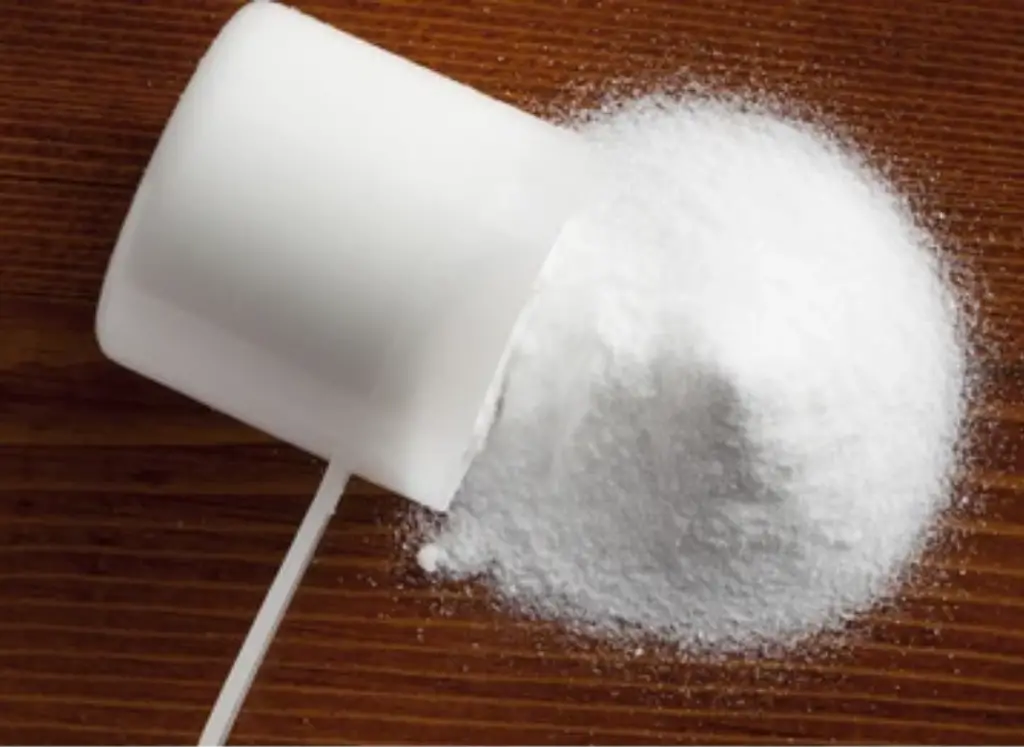
One crucial factor to note is that the recommended creatine supplement for adults and teens should always be powdered. Therefore, the creatine dose depends on medical conditions, sex, and age.
Adherence to these critical factors will reduce side effects and certain instances, such as an overdose.
The dose should be administered 3 to 5 days with 0.3 to 0.8kg a day. This dosage is enough to boost strength, muscle mass, and other benefits in general.
The energy produced by creatine is sent to the brain to prevent tiredness of the body that may lead to other fatigue symptoms.
Pro tip: it’s best to start with the lowest dose possible and increase gradually over time.
Possible Side Effects of Creatine
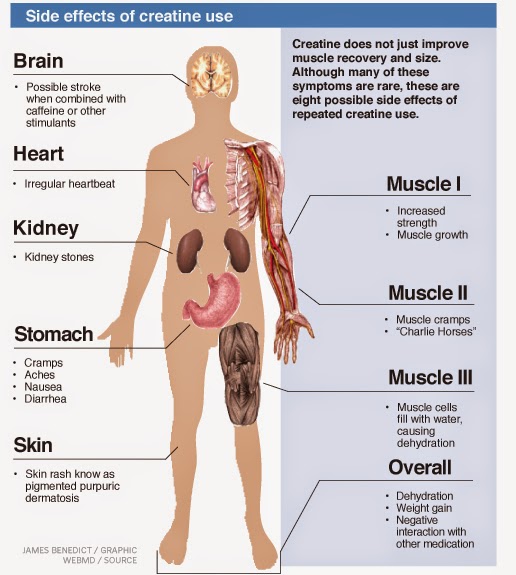
Every supplement has a common side effect, just like normal medications. Well-known side effects of creatine include:
- Bloating: Bloating is the most common side effect of creatine. Bloating is caused by water retention in the muscles.
- Weight Gain: Taking creatine might result in weight gain if you don’t work out or eat right.
- Diarrhea: Diarrhea results from increased protein intake. Some forms/types of creatine that can be taken to prevent diarrhea are Creatine Hydrochloride and Magnesium Creatine Chelate (MCC).
- Kidney Stones: Kidney stones result from the imbalance between water and salt in the body. Creatine is said to increase water retention in the body, which might cause kidney stones.
- Stomach Aches: Stomach aches are caused by several factors. They can be creatine-related or a result of dehydration or lack of electrolytes in your diet.
- Nausea: The increased protein intake while on creatine might cause nausea, vomiting, and dizziness
- Muscle Cramps: Cramps are caused by dehydration, lack of electrolytes, and improper workout schedule. Taking BCAA supplements will help solve this problem.
- Headaches: Headaches result from dehydration, lack of electrolytes, and improper workout schedule.
- Musculoskeletal System Disorders: Are caused by the increased protein intake while on creatine which might cause cramps, joint pain, muscle spasms, and weakness.
- Dizziness: This is also a side effect caused by dehydration and lack of electrolytes; taking BCAA supplements can help solve this problem.
It is important for teens to always get advice from the doctors in charge of the dosages and get guidance from their teachers and parents on the correct use of this supplement to avoid such side effects.
Most of these side effects are not long-term; therefore, teens should not be worried about using creatine in the future.
How to Take Care of Your Body When Taking Creatine
The most important thing to remember when taking creatine is that it can be dangerous if you do not take care of your body. Creatine can cause dehydration, muscle cramps, nausea, diarrhea, and more. Therefore, the best way to protect yourself from these side effects is to drink plenty of water before, during, and after taking creatine.
The National Strength and Conditioning Association (NSCA) recommends that individuals drinking 64 ounces or more of fluids per day should consume at least 16 ounces of water 30 minutes before a workout.
Additionally, individuals who exercise for around 2 hours should drink another 16 ounces of water every hour for the first 6 hours following their workout.
If you feel like you are getting dehydrated or having cramps/issues with your muscles/bowel movements, stop the supplement immediately and hydrate yourself properly!
How Old Do You Have to Be to Buy Creatine?
It is important to note that there are no age limits for consumers when it comes to buying creatine products. Therefore, you can buy it at any age as long as you can consume it.
Creatine can be bought over the counter in various forms, including creatine monohydrate (creatine anhydrous), creatine citrate, and micronized creatine.
So, while there is no age limit when it comes to buying creatine, you should always consult your doctor before taking it if you have any health conditions or concerns first.
Additionally, if you’re looking to buy creatine online, make sure you do so from an authorized retailer. If you don’t, there is a chance that you could end up with fake products that could damage your health.
Is Creatine Legal for High School Athletes?
Creatine is legal for all ages. Creatine is legal for use by high school athletes to help improve performance and recovery, but there are some things to keep in mind. It can be taken in supplement form. However, it should only be taken under the supervision of a medical professional.
High school athletes should not take creatine if they have kidney issues or a heart condition. It is also important to note that while creatine can be safe for healthy adults, there’s not enough research on the long-term effects of creatine use in children.
So always talk with your doctor before taking creatine supplements.
Why Do I Feel Weird After Taking Creatine?
One of the most common side effects of creatine is feeling weird after taking it. This feeling can range from mild to severe.
Mild side effects include:
- Headaches
- Nausea
- Insomnia
- Dry mouth
- Dizziness
- Fatigue
- Muscle cramps
- Muscle soreness
- Muscle twitching
- Nausea
- Diarrhea
- Constipation
- Increased urination
Does Creatine Cause Acne?
Does Creatine Cause Acne?
While there isn’t a direct link between creatine and acne, some teens are more prone to hormone-driven breakouts when taking supplements.
When exogenous hormones (those that come from outside sources) like testosterone and DHT enter the body through its pores, they cause oil production and clogged pores.
Excess oil sitting inside your pores leads to breakouts as it causes irritation on top of already existing inflammation in your skin caused by other factors like stress or excess sun exposure.
If you’re prone to acne due to hormone imbalance or trouble regulating your periods during puberty (or both), then it could be wise not to take any exogenous hormone-boosting supplements until after you’ve finished puberty—and remember: not everyone responds similarly!
Frequently Asked Questions
Does creatine help you build muscle?
Like many other nutrients, creatine can help support muscle growth when taken in supplement form along with exercise. Research has shown that it can increase lean body mass and strength in both men and women who consume it regularly while part of a consistent workout regimen.
Is creatine safe for a 16-year-old?
Studies have not shown any negative effects of prolonged creatine use among teens. However, proper knowledge should be instilled on the dosage of this supplement, especially for teen athletes.
Is there a specific age for one to purchase creatine?
The law has not prohibited minors from buying creatine; however, teenagers who seek this supplement should always have proper direction from a nutritionist or doctor for safety purposes.
How does creatine affect a teenager?
Creatine has a lot of benefits among teenagers, including muscle mass, strength, and great performance. It is also a recovery supplement, especially after intense workouts.
Is creatine safe for teens?
Creatine is safe for teens. It has been used for many years in the fitness industry, and there have not been any reports of creatine causing harm. Creatine is proven to be safe, but it is important to remember that, like anything else, there are some precautions that you should take before supplementing with creatine.
Do You Need an ID to Buy Creatine?
If you’re looking to buy creatine, you don’t need an ID to do so. However, some stores may require an ID for certain items, like creatine, due to rules set by the retailer (and probably to avoid lawsuits). This can depend on your location as well as the item in question.
Does creatine affect height growth?
The opposite is true; creatine will not stunt your growth. Instead, creatine will assist in strengthening and repairing muscle tissues, promoting and supporting that process. Creatine works by helping to strengthen and repair muscles, so it does not affect short-term or long-term muscle growth or size. It does increase your ability to lift weights (and therefore stimulate muscle growth), but only at higher dosages than normal amounts of creatine monohydrate taken by adults and teenagers alike.
Can creatine make you angry?
While some research suggests that creatine supplementation can improve mood, it is important to note that no study has ever shown that creatine supplementation causes changes in the brain or mood. Studies suggest that when people take creatine supplements, they experience an increase in muscle creatine levels. This could potentially improve mood by increasing feelings of energy and mood-boosting properties of muscle creatine.
Does creatine cause anxiety?
Creatine has been shown to improve mood and concentration in people with anxiety. However, there is a lack of evidence supporting the use of creatine for anxiety. This is because there are many other factors that may be responsible for the improvement in mood and concentration.
Can creatine change your face?
One of the most common side effects is water retention. This can lead to puffy cheeks and a swollen face. In addition, creatine can change how your skin looks by causing it to appear more oily and flaky. This can be a problem if you are trying to use creatine as a weight loss supplement. You can easily avoid this by drinking water.
Can creatine cause brain damage?
There’s no evidence that creatine causes brain damage, and it actually protects the brain from ischemic injury by preventing the depletion of ATP (energy).
Conclusion
Creatine is a nutritional supplement that boosts energy and muscle growth. Research has also established that creatine can treat several pediatric diseases, such as traumatic brain injury. Athletes, weightlifters, and teens have greatly benefited from this additive, especially during workouts.
However, is creatine safe for teens? Teens as young as the ninth graders use creatine for their daily exercises and field activities. In case of any injury, the same supplement acts as a recovery method.
Creatine also has several side effects, such as muscle cramps, bloating, and dehydration. The side effects are temporary because they eventually subsidize. Teens using this supplement should also be guided by their coaches and nutritionist on how to take the correct dose.
Teens can have a great healthy and strong body with creatine, as long as they follow the instructions on using the supplement.
References
- Reasons Why Creatine Monohydrate Is the Best: https://www.healthline.com/nutrition/creatine-monohydrate-is-best
- Types of Creatine: https://www.healthline.com/nutrition/types-of-creatine
- PH-Dependent Stability of Creatine Ethyl Ester: https://www.ncbi.nlm.nih.gov/pmc/articles/PMC4469200/
- Is The Warning That Creatine Is Not for Teens Getting Through? https://www.npr.org/sections/health-shots/2017/01/02/507478762/is-the-warning-that-creatines-not-for-teens-getting-through
- Creatine Supplementation in Children and Adolescents: https://www.ncbi.nlm.nih.gov/pmc/articles/PMC7922146/pdf/nutrients-13-00664.pdf
- Is Creatine Safe, and Does It Have Side Effects? https://www.healthline.com/nutrition/creatine-safety-and-side-effects
- Creatine: https://www.nsca.com/education/articles/kinetic-select/creatine-essentials/
- Is Creatine Safe for Teenagers? https://bestfornutrition.com/creatine-for-teenagers/
- Creatine: https://www.ncbi.nlm.nih.gov/books/NBK209321/#_ddd00135_
- Safety of Creatine Supplementation in Active Adolescents and Youth: https://www.ncbi.nlm.nih.gov/pmc/articles/PMC6279854/
- International Society of Sports Nutrition position Stand: https://www.ncbi.nlm.nih.gov/pmc/articles/PMC2048496/
- Creatine Supplementation in High School Football Players: https://pubmed.ncbi.nlm.nih.gov/11753062/
- Creatine Use Among a Select Population of High School Athletes: https://pubmed.ncbi.nlm.nih.gov/11126833/















